Does anyone garden for pollinators?
Ispahan Zone6a Chicago
11 years ago
Featured Answer
Sort by:Oldest
Comments (13)
prairiemoon2 z6b MA
11 years agolast modified: 9 years agojakkom
11 years agolast modified: 9 years agoRelated Discussions
Anyone have hives in the garden for pollination?
Comments (1)I don't know if you've already explored around, but I thought I'd post this site for you just in case you haven't seen it. It's for the Madison County Beekeepers' Association. Here is a link that might be useful: Bzzzzzzzzzz...See MoreBeginner gardener wondering about cross pollination & seed saving
Comments (6)Hi Antoinette, We seem to be on parallel paths! I moved from California (SF bay area) to Pennsylvania late last year and this is my first year with a really large garden in a totally new climate. I also went completely overboard with Heirlooms, particularly squash, beans and hot peppers. And tomatoes. Oh, lets face it, I went overboard with everything. Really, who needs six different kinds of onions? Apparently, me. Partially, this year is to trial different heirlooms, partially to save seed for next year. I hate to be the barer of bad news, but you (and I) will have a tough time keeping your varieties seperate unless you have a REALLY large plot. I don't, so I'll be doing a lot of blossom bagging/taping. I believe everything you listed will cross (including carrots, onions, etc) to some degree or another. Your best bet is to buy the book "Seed to Seed" by Suzanne Ashworth. It is AWESOME. It will tell you the distances you need to seperate varieties by and other methods if you don't have distance. From your list, corn in particular will be difficult (but not impossible). Squash is relatively easy, just tape the blossom and hand polinate (details in the book). Beans can sometimes be seperated by tall flowers to limit crossing, but your scarlet runner and painted lady will cross very, very easily with each other (but not your other beans) Buy the book! You'll be happy you did. And best of luck with everything. I had to smile - your list looks so much like mine. I think the limited space in California has made be go a little nuts now that I have room :) Bellatrix...See MoreGardening for pollinators
Comments (3)I don't think Lantana will winter over, but if you are willing to move it inside on frosty days/nights and outside whenever it's supposed to stay above 40, you might be able to winter it over for next year. Stokes aster is hardy, but I would plant it in the ground and then dig it when you are ready to move. Most plants have a hard time with the freeze-thaw cycles of pots. For pots, I usually use annuals or half-hardy perennials. I put the pots with half-hardy perennials somewhere cool to iwnter over like our kitchen or in our sunny entryway. You may be able to use a garage. Salvia 'Black and Blue' may winter over for you in the ground and insects and hummers like it. Other pollinator plants that will do well at this time of year include single mums and asters. Ones you can plant now to enjoy in the spring include the native honeysuckle Lonicera sempervirens which has red, yellow or orange flowers, milkweeds like butterflyweed (Asclepias tuberosa) for monarch butterflies as well as pollinators, annual fennel which has flowers, but also foliage loved by the swallowtail butterflies. I think that many of the folks on the butterfly forum may have suggestions or try the perennial forum which tends to be busier and has many midwesterners and those in southern Ontario. Here's a thread on butterfly gardens from the midwest forum....See MoreDoes anyone believe in companion gardening?
Comments (66)Anyhow, Zackey, you asked a question, here is my answer: there are five principles of soil health, which are rather different from common wisdom from 30 years ago. It is good to have principles because every site, soil, climate is different, but following those principles generates positive outcomes all over the US. you can find presentations about soil health on youtube, or at the ATTRA, SARE, Rodale, and USDA NRCS sites. If you want a fairly complete presentation, this one by Gabe Brown, a farmer who works closely with a strong group of soil scientists at NDSU, is good and complete (it was my first one, and I chanced on it while trying to help my daughter with a college assignment. Since then I read dozens of scientific papers) https://www.youtube.com/watch?v=9yPjoh9YJMk If you want something more inspiring, Ray Archuleta of the USDA NRCS is the ticket. All his videos are posted by someone who went to listen to him, but he posted a single one, where he shows how he prepares his vegetable garden, that will shock you as it shocked me. It involves his daughter's car. Most of these principles are aimed at optimizing the biological activity in your soil. From it fertility follows. You are interested in vegetable companionship, you can sidestep the polemic and head to Wikipedia where you can search "Intercropping". It is the same thing but one thousand years old. Look there and you will see that, say, tomato and carrots follow the guidelines. They have different root canopies, different light requirements, and use different nutrients. Both feed the network, to their advantage and for the advantage of future crops. But the greatest damage done to the soil are heavy tilling and letting it lay fallow, so the greatest help comes from avoiding those. Winter cover crops provide for that, while providing extra carbon and some nitrogen to nourish the soil. You are in the South and you can even use summer cover crops, between spring and fall crops, which are incredible soil builders, such as sorghum and crotolaria. Cover crops should also have a deep rooted fraction that is essential to great soil. Sure carrots are good (go down to 8 feet) but carrots or others, you have to build those channels that go down to optimize the physical properties of your soil. Cover crops can be dispatched in a variety of ways, the simplest is to use crops that winterkill. Plenty of material on youtube on that. These soil scientists are so visible and are beating their drum so much because they think that you can build ultra-fertile soil (chernozem, basically) in 5 years, which is a lot shorter than the 1000s of years nature takes. If you start by cover cropping in winter, and never plant a bed with only non-myc. vegetables (ha! I was the worst offender. I like my garden neat and ordered. In fact, a good garden needs to look messy), you will be on your way. I plant cabbage in clover and arugula, tomato in a variety of things, mostly chicory and corn salad, interplant parsnips with lacinato, and do other things if you are interested. But I started only 16 months ago, and I am still collecting data....See Morepat4750
11 years agolast modified: 9 years agolavender_lass
11 years agolast modified: 9 years agoaklinda
11 years agolast modified: 9 years agotsugajunkie z5 SE WI ♱
11 years agolast modified: 9 years agoDYH
11 years agolast modified: 9 years agolavender_lass
11 years agolast modified: 9 years agoIspahan Zone6a Chicago
11 years agolast modified: 9 years agocurdog007
8 years agoThe District Sprouts
8 years agoJulie Beutler Hron
2 years ago
Related Stories
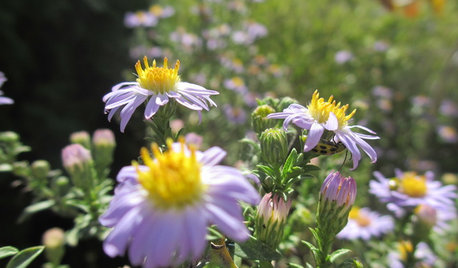
NATIVE PLANTSPlant These Fall-Flowering Natives in Early Summer for Pollinator Love
These 3 groups of plants will support masses of beneficial insects come autumn
Full Story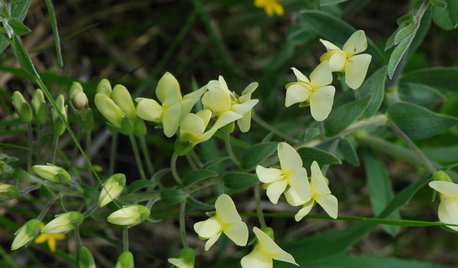
FLOWERS AND PLANTSPlant Baptisia Bracteata for Blooms Pollinators Will Love
Longbract wild indigo is great in dry soil, and its spring flowers attract butterflies and bumblebees
Full Story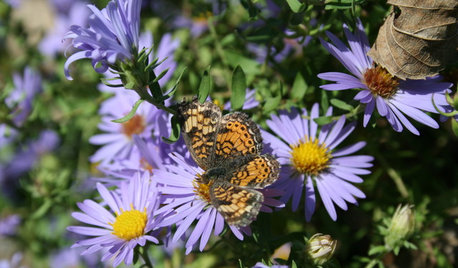
GARDENING GUIDESGreat Design Plant: Smooth Aster, the Wonder Pollinator
An insect nirvana with lovely near-blue petals, this low-maintenance aster strives to please
Full Story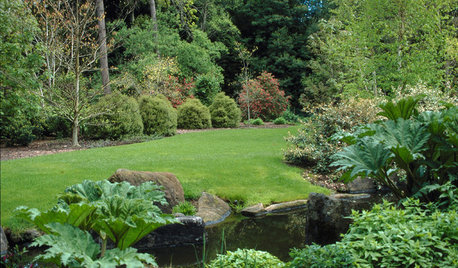
GARDENING GUIDESYou Don't Need Prairie to Help Pollinators
Woodlands, marshes, deserts — pollinators are everywhere
Full Story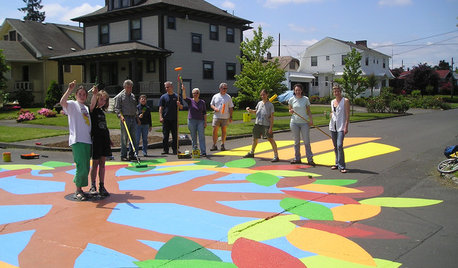
COMMUNITYCommunity Building Just About Anyone Can Do
Strengthen neighborhoods and pride of place by setting up more public spaces — even small, temporary ones can make a big difference
Full Story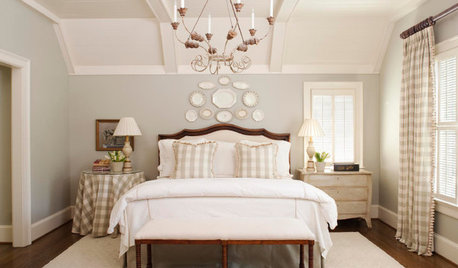
BEDROOMSThe Cure for Houzz Envy: Master Bedroom Touches Anyone Can Do
Make your bedroom a serene dream with easy moves that won’t give your bank account nightmares
Full Story
BATHROOM DESIGNThe Cure for Houzz Envy: Bathroom Touches Anyone Can Do
Take your bath from blah to ‘ahhhh’ with just a few easy and inexpensive moves
Full Story
HOME OFFICESThe Cure for Houzz Envy: Home Office Touches Anyone Can Do
Borrow these modest design moves to make your workspace more inviting, organized and personal
Full Story
DECORATING GUIDESThe Cure for Houzz Envy: Family Room Touches Anyone Can Do
Easy and cheap fixes that will help your space look more polished and be more comfortable
Full Story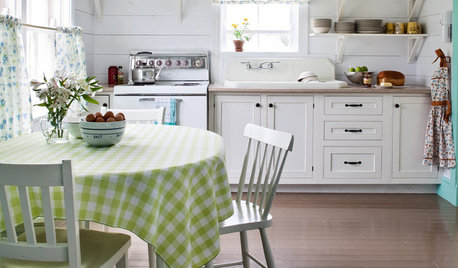
KITCHEN DESIGNThe Cure for Houzz Envy: Kitchen Touches Anyone Can Do
Take your kitchen up a notch even if it will never reach top-of-the-line, with these cheap and easy decorating ideas
Full Story


jodikay